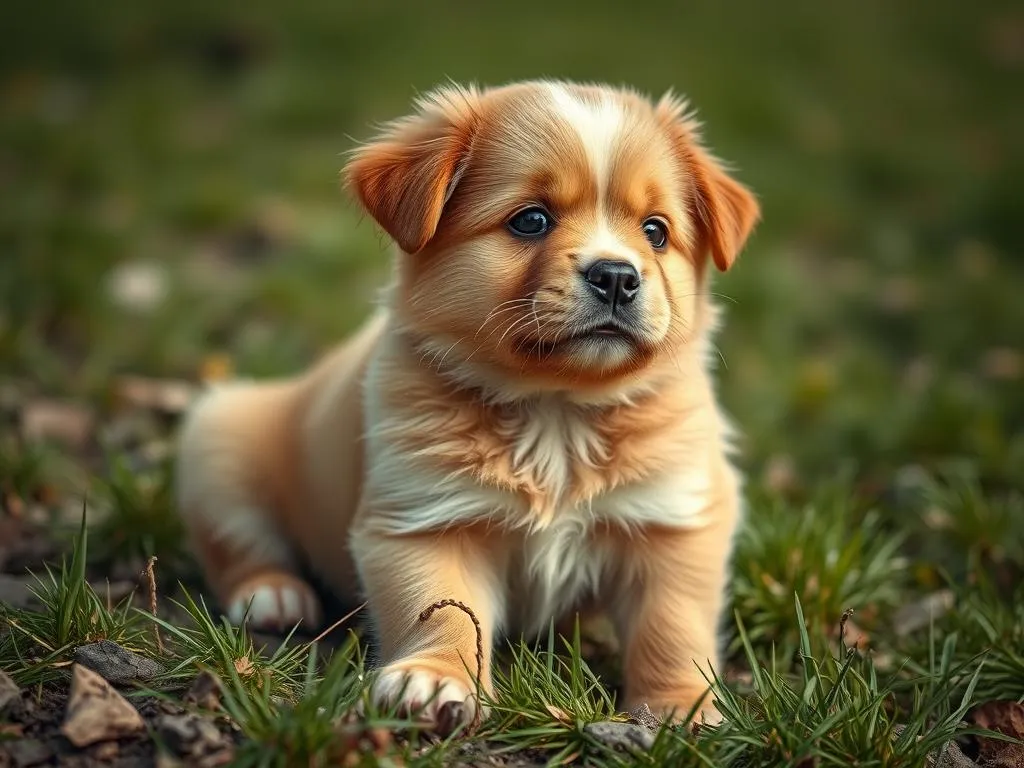
Puppy health care is essential for ensuring your furry friend grows up healthy and happy. One crucial aspect of puppy care that often goes overlooked is understanding their urination needs. Knowing how often do puppies need to pee can help you ensure your puppy is comfortable and healthy. This article aims to provide insights into urination frequency in puppies, what influences it, and how to recognize any potential health issues.
Understanding Puppy Development
Puppies experience rapid growth and development in their early months. Understanding these growth stages is vital for comprehending their urination patterns.
Growth Stages of Puppies
-
Neonatal stage (0-2 weeks): During this stage, puppies are entirely dependent on their mother. They primarily eat, sleep, and eliminate, often with little to no control over their bladders.
-
Transitional stage (2-4 weeks): Puppies begin to open their eyes and ears, becoming more aware of their surroundings. Their ability to control urination starts to develop, although they still rely heavily on their mother.
-
Socialization stage (4-12 weeks): This is a critical period for learning and social interaction. Puppies start to gain more control over their bladder and will begin to indicate when they need to urinate.
-
Juvenile stage (3-6 months): Puppies continue to develop physically and behaviorally. By this stage, they typically have better control over their urination, but frequent potty breaks are still necessary.
Factors Influencing Urination Frequency
Several factors can affect how often a puppy needs to pee:
-
Age and size of the puppy: Younger puppies tend to urinate more frequently than older ones. Smaller breeds may have smaller bladders, necessitating more trips outside.
-
Breed-specific characteristics: Some breeds naturally have higher energy levels and may drink more water, leading to increased urination.
-
Health status and any underlying conditions: Health issues such as urinary tract infections or diabetes can significantly affect urination frequency.
Normal Urination Patterns in Puppies
How Often Do Puppies Need to Pee?
Knowing how often do puppies need to pee can help you establish a routine that accommodates your puppy’s needs. Here are general guidelines based on age:
-
Newborns (0-2 weeks): Typically urinate every 1-2 hours, as they have minimal control over their bladders.
-
Young puppies (2-4 months): They may need to urinate approximately every 2-4 hours. At this stage, they are starting to develop more control.
-
Older puppies (4-6 months): As they grow, many puppies can hold their urine for 4-6 hours, depending on their size and breed.
Variability according to individual factors is common, so monitoring your puppy’s habits is key.
Signs of a Healthy Urination Pattern
A healthy urination pattern can be characterized by:
-
Frequency and volume: Puppies should urinate several times a day without excessive straining.
-
Color and consistency of urine: Healthy urine is typically light yellow. Darker urine may indicate dehydration, while cloudy or foul-smelling urine could signal a health issue.
-
Behavior before and after urination: Watch for signs that your puppy needs to go, such as sniffing, circling, or whining.
Factors Affecting Puppy Urination Frequency
Several external factors can influence how often your puppy needs to urinate.
Diet and Hydration
A balanced diet is essential for overall health and can significantly impact urination frequency.
-
Importance of a balanced diet: Ensure your puppy is eating high-quality food that meets their nutritional needs.
-
How water intake influences urination: Puppies that drink more water will naturally need to urinate more frequently. Be mindful of their water intake, especially after exercise.
-
Foods that may affect urination frequency: Certain foods, especially those high in salt or protein, can increase thirst and result in more frequent urination.
Activity Level
Exercise plays a crucial role in regulating urination.
-
Relationship between exercise and urination: Active puppies often drink more water and may need to relieve themselves more frequently.
-
Signs that a puppy needs to go outside: Look out for pacing, whining, or sniffing around the door, which can indicate your puppy’s need to urinate.
Environmental Factors
External conditions can also influence urination habits.
-
Temperature and humidity effects: Hot weather can increase thirst, leading to more frequent urination, while cold weather may lead to less frequent trips outside.
-
Changes in routine or stress levels: A change in environment or routine can affect a puppy’s behavior, including their urination habits.
Health Issues Related to Urination
Understanding potential health issues is vital for responsible puppy ownership.
Common Health Problems
Several health conditions may affect urination frequency:
-
Urinary tract infections (UTIs): These can lead to increased urgency and frequency of urination, often accompanied by discomfort.
-
Bladder stones: These can cause pain and changes in urination patterns, including straining or blood in the urine.
-
Diabetes and kidney issues: Both conditions can result in increased thirst and urination. Monitoring your puppy’s behavior is essential for early detection.
Recognizing Abnormal Urination Patterns
Be vigilant for signs that something may be wrong:
-
Increased frequency (pollakiuria): If your puppy suddenly needs to urinate more often, it could indicate a health issue.
-
Incontinence signs: Accidents in the house and inability to control urination can be concerning and warrant a veterinary visit.
-
Changes in urine color or odor: Unusual changes may signal underlying health problems.
When to Consult a Veterinarian
Knowing when to seek professional help is crucial:
-
Warning signs that require immediate attention: If your puppy displays signs of pain, lethargy, or has a marked change in urination habits, consult a veterinarian.
-
Recommended health checks for puppies: Regular veterinary visits are recommended to monitor your puppy’s health, including urinary health.
Potty Training Your Puppy
Effective potty training is essential for both you and your puppy’s well-being.
Understanding the Potty Training Process
Establishing a routine is key:
-
Importance of consistency and routine: Take your puppy out at regular intervals, especially after eating, drinking, or playing.
-
Signs that your puppy needs to go: Recognizing behaviors that indicate your puppy needs to urinate will help prevent accidents.
-
Recommended frequency for potty breaks based on age: Puppies younger than 6 months typically need to go out every 2-4 hours.
Techniques for Successful Potty Training
Several methods can aid in successful potty training:
-
Crate training methods: A crate can help your puppy learn to hold their bladder when used correctly.
-
Scheduled potty breaks: Regularly scheduled breaks will establish a routine and help your puppy learn when to expect potty time.
-
Positive reinforcement strategies: Rewarding your puppy for urinating outside can reinforce good behavior.
Troubleshooting Common Potty Training Issues
Every puppy is different, and challenges may arise:
-
Accidents in the house: If accidents happen, avoid punishment. Instead, clean up thoroughly to remove odors.
-
Regression in trained puppies: If your puppy has accidents after being trained, it may be due to stress or changes in routine.
-
Tips for reinforcing good habits: Consistency, patience, and positive reinforcement are critical for successful potty training.
Conclusion
Understanding your puppy’s urination needs is vital for their health and comfort. Monitoring their habits can help you identify any potential health issues early on. As a responsible dog owner, staying informed about your puppy’s health needs, including urination frequency, will contribute to their overall well-being. Regular veterinary check-ups and being attuned to your puppy’s behavior are essential components of responsible pet ownership. By providing the right care and attention, you can ensure your puppy grows into a healthy, happy adult dog.









